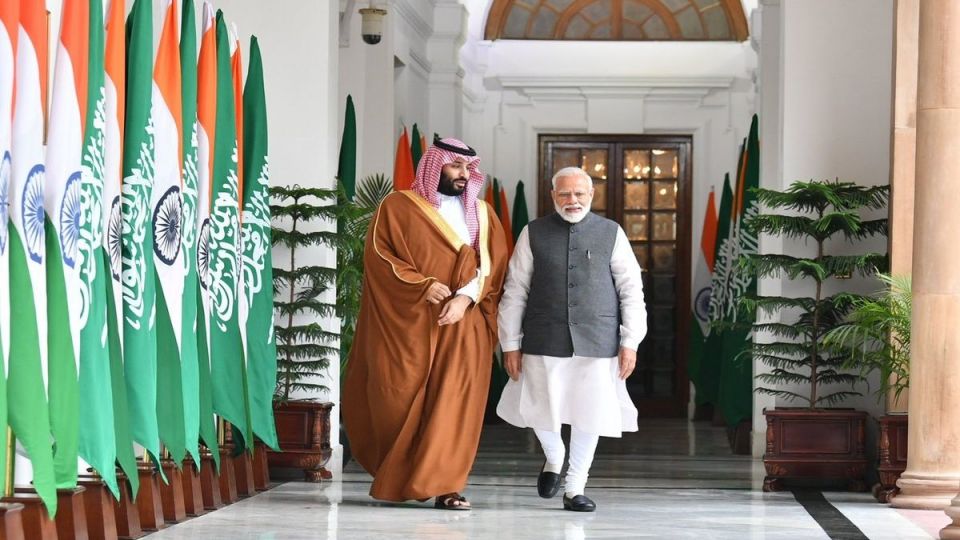
On February 2019, a significant milestone in India-Middle East relations was marked by a joint statement between India and Saudi Arabia. This statement emphasized the responsibility of the two countries to promote peace, security, and stability in the region. However, beneath the diplomatic language lay a more complex narrative influenced by the promotion of Hindutva ideology by the Indian government. India under the BJP administration is developing a complex relationship with the Middle East that focuses on the impact of Hindutva ideology on diplomatic its bilateral ties with the states the region and in particular, India’s positioning as a representative of the Global South.
Hindutva, an ideology seeking to establish a Hindu Rashtra based on India’s extended influence, has been championed by the current Indian government under Prime Minister Narendra Modi. This ideology’s domestic pursuit influences India’s image and actions internationally. The construction of the first Hindu temple in Abu Dhabi, initiated in 2019, is a significant symbol of the growing Hindu community in the region. Known as the BAPS Swaminarayan Mandir, this temple reflects India’s cultural and religious influence in the Middle East. Such initiatives indicate India’s efforts to promote Hindutva and Hindu culture in the region, enhancing its soft power.
Economic cooperation has been a cornerstone of India’s relations with the Middle East. The ties with Saudi Arabia exemplify this dynamic, with two-way trade reaching $42.6 billion in 2021-22. Additionally, Saudi Arabia has identified investment opportunities in India worth $100 billion, spanning sectors such as renewable energy, healthcare, food security, technology, climate change, and the defense industry. Similarly, the UAE has committed $75 billion for investment in India’s infrastructure, demonstrating deep economic collaboration. Prime Minister Modi’s repeated visits to the Middle East underscore India’s commitment to strengthening strategic partnerships and economic cooperation. In his first term, Modi visited the UAE, Saudi Arabia, Iran, Qatar, and Israel, emphasizing the importance of these relationships. These visits aimed to bolster economic ties, strategic partnerships, and security cooperation, reflecting India’s desire to enhance its influence in the region.
The ideological affinity between conservative Zionism in Israel and political Hindutva in India further shapes the promotion of Hindutva in the Middle East. Both ideologies emphasize the marriage of faith and politics, the sacredness of territory based on ancient holy texts, and the view of Muslims as the “other.” This shared worldview has led to instances where Hindutva cohorts have expressed support for Israel in conflicts with Palestine, reflecting a commonality in their ideological underpinnings, highlighting how domestic ideologies can shape foreign policy decisions.
India’s policy of global influence under the Hindu Rashtra conception blends cultural, economic, and ideological strategies to assert its presence internationally. Promoting Hindu culture through temple construction and cultural festivals enhances India’s soft power, while ideological alignment with conservative movements like Zionism strengthens bilateral ties. Economically, India’s robust trade and investment relationships with Saudi Arabia and the UAE reflect its global ambitions. Geopolitically, India balances major powers and regional players, countering influences from China and Pakistan to assert its influence. Domestically, this policy reinforces national identity and positions India as a cultural and economic powerhouse on the global stage.
Despite the economic and strategic ties, the promotion of Hindutva and the pursuit of a Hindu Rashtra by the Modi government have raised concerns among Middle Eastern nations, particularly those with significant Muslim populations. The discriminatory treatment of minorities in India and the ideological alignment with Zionism can impact India’s relations with these countries. While the Gulf monarchies have generally avoided commenting on India’s domestic issues, there have been instances of uneasiness, particularly in response to Islamophobic incidents in India.
The promotion of Hindutva in the Middle East involves a complex interplay of economic interests, strategic partnerships, and ideological affinities. Despite strengthening diplomatic and economic ties, the Modi government’s Hindutva agenda has raised concerns among Middle Eastern nations. The ideological alignment with conservative Zionism in Israel underscores the interconnectedness of ideologies and foreign policy. India’s future relations with the Middle East will hinge on balancing its domestic ideological pursuits with international diplomatic and economic objectives. Thus, while economic agreements and strategic partnerships remain robust, the ideological underpinnings of Hindutva could challenge India’s long-term interests in the region.
